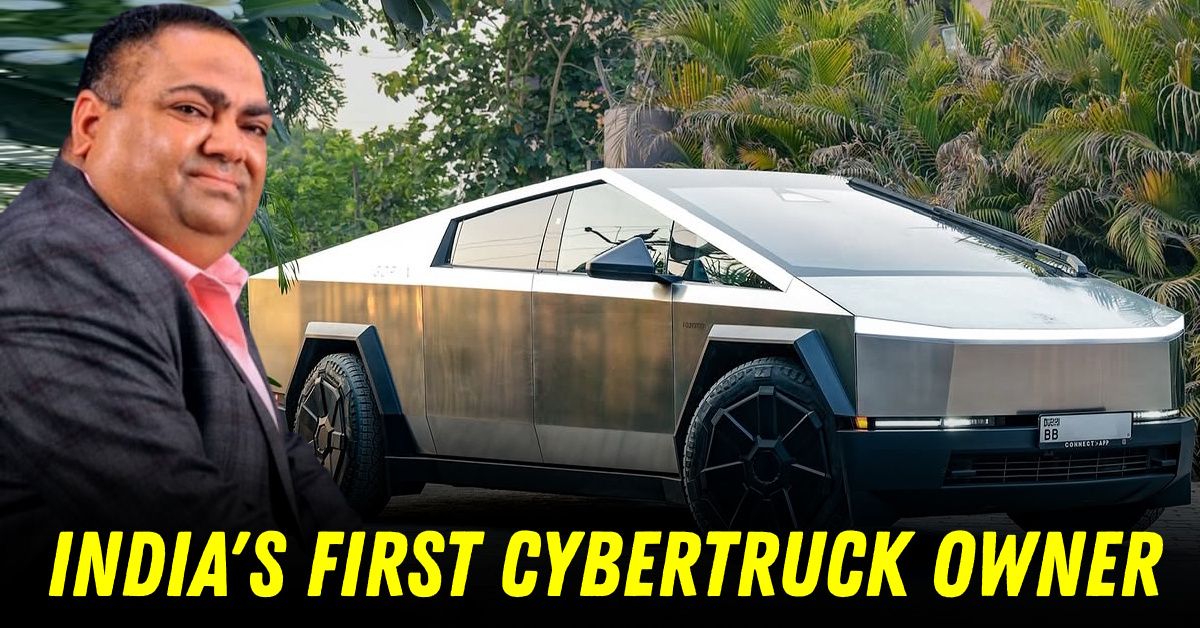Surat Business Tycoon Lavji Daliya Drives India’s First Tesla Cybertruck


In Surat, a city better known for its diamond trade, a different kind of headline has caught attention. Lavji Daliya, a well-known businessman from the city, has become the first Indian to import a Tesla Cybertruck.
The Cybertruck, Tesla’s futuristic all-electric pickup, arrived recently in Surat, marking a rare sight on Indian roads. For Daliya, who has a long-standing interest in technology and innovation, the decision to bring the Cybertruck was driven by a fascination with emerging trends in sustainable transport. "The Cybertruck isn't just a vehicle; it’s a statement of future mobility," he said.
Importing the vehicle was a complex process involving navigation through India's import regulations, customs duties, and compliance standards. Despite the hurdles, Daliya was determined to add the Cybertruck to his collection, seeing it as a symbol of progress and a nod to the global shift towards electric vehicles.
Since its arrival, the Cybertruck has generated curiosity among Surat’s residents, many of whom are encountering Tesla’s distinctive design language for the first time. Daliya hopes his move will encourage more conversations around electric vehicles and sustainable transportation options in India, even as infrastructure for EVs remains a work in progress.
However, beyond the novelty factor, the Cybertruck itself has a larger story—one that goes far beyond a single buyer’s enthusiasm.
Unveiled by Elon Musk in November 2019, the Cybertruck defied conventional vehicle design with its sharp edges, angular structure, and an exoskeleton made of ultra-hard stainless steel. It was designed to offer the utility of a pickup with the performance of a sports car. Tesla promised impressive numbers: a towing capacity of over 6,000 kg, a range of up to 500 miles (around 800 kilometres) in its tri-motor configuration, and 0–100 km/h acceleration in about 2.9 seconds for the top variant.
The Cybertruck's starting price in the US market was initially announced at around $39,900 (approximately ₹33 lakh) for the base model. However, by the time production began in late 2023, costs had risen. Current estimates suggest the entry-level version costs upwards of $60,000 (around ₹50 lakh), and fully loaded models can cross $100,000 (over ₹80 lakh). Importing a Cybertruck to India would significantly inflate this price due to customs duties and taxes, likely pushing the final cost well over ₹1.5 crore.
The Cybertruck’s journey has not been smooth. Originally slated for a 2021 launch, the vehicle faced multiple production delays, partly due to Tesla's focus on scaling other models and the technical challenges involved in producing its unique exoskeleton at scale. Critics also questioned its practicality, especially its large dimensions, poor aerodynamics, and concerns around pedestrian safety standards in markets outside the US.
Initial production models have faced teething issues, including inconsistent panel gaps, software bugs, and questions about build quality—an ongoing concern for Tesla across models. Videos of owners struggling with sticky doors and sudden battery shutdowns in early batches have surfaced online, raising questions about readiness.
Despite these issues, the Cybertruck has carved a distinct niche. It has a loyal fan base, particularly among those who admire Tesla’s audacity to disrupt the pickup truck market dominated by traditional players like Ford, GM, and Rivian. Tesla claimed it had over a million reservations at one point, although actual conversion rates into sales are less clear.
Whether the Cybertruck will ultimately be a success remains debatable. In the US, initial demand was strong among Tesla loyalists and tech enthusiasts but quality issues combined with Musk’s role at DOGE has led to dulling of sentiment. However, the Cybertruck’s unconventional design, premium pricing, and emerging competition from electric pickups like the Ford F-150 Lightning and Rivian R1T pose significant challenges.
Analysts suggest that while it may not replace traditional trucks in terms of utility or widespread appeal, it achieves what Tesla often aims for: sparking conversation, redefining perceptions, and pushing the industry forward.
For now, in India, it remains more a symbol of ambition and early adoption rather than mass practicality.